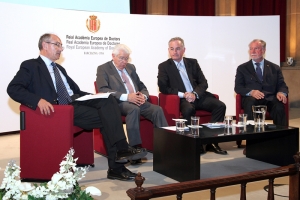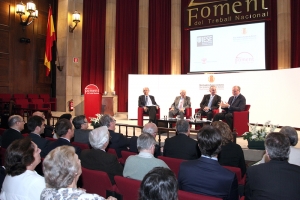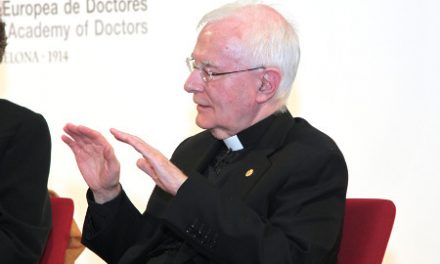The family business is in good health and facing the challenges of economic recovery is a commercial model as competitive as it has been in the years of crisis. These were the main conclusions of the participants in the academic session “Empresa Familiar: más allá de la tercera generación”(Family Business: beyond the third generation), organized by the Royal European Academy of Doctors-Barcelona 1914 (RAED) on March 23 in the cicle “Jornadas sobre la Empresa Familiar” (Family Business Days) with the collaboration of IESE, Fomento del Trabajo Nacional and the Spanish Institute of Family Business.
The session was attended by Joan Francesc Corona, director general of the Spanish Institute of Family Business and full academician of the RAED; Josep Tàpies, holder of the Chair of Family Business of IESE, and José Manuel Calavia, professor of Commercial Law of the University of Barcelona and full academician elected of the RAED. Joaquín Tornos, professor of Administrative Law at the University of Barcelona and president of de Legal Comission of Fomento, moderated the session.

Calavia made it necessary to differentiate between the government of the company and the administration or government of the activities or business management. “A lot of times they are confused and that creates risks in this model, and to act in the right way is the key to success and continuity of the company”, he said.

According to Corona, “in the new context of economic growth, the family business will play an even more prominent role in what has been traditional in it, fundamentally because its characteristics adapt very well to the specifics of what the markets are going to be in the future: extremely competitive and oriented towards long-term sustainability. The family business, precisely because of its idiosyncrasy, presents the ideal characteristics to ensure that in an advanced economy these principles are applied at the highest level and allow it to be competitive”.



